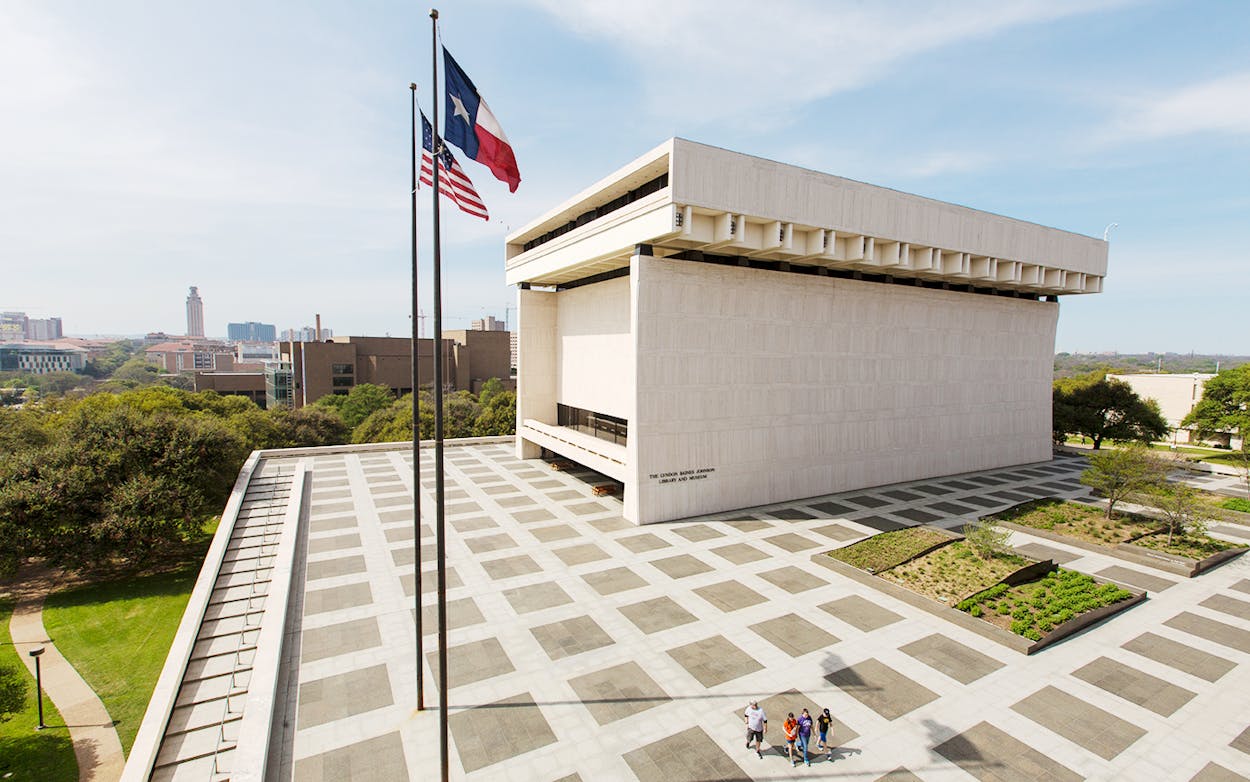Recent years have brought record numbers of asylum seekers at the U.S.-Mexico border, a significant increase in reported hate crimes, and purges in state voter rolls—not to mention Texas’ controversial voter fraud review. In the face of all these developments, it becomes increasingly difficult to ignore that racial and cultural divides remain central to our country’s most fraught political debates. Austin’s LBJ Foundation hopes to help develop a blueprint for how these divisions might be healed, with a three-day Summit on Race beginning April 8.
Five years ago, four U.S. presidents—Jimmy Carter, Bill Clinton, George W. Bush, and Barack Obama—gathered at the LBJ Presidential Library for the foundation’s Civil Rights Summit, a commemoration of the fiftieth anniversary of the passage of the federal Civil Rights Act. This time around, foundation president and CEO Mark Updegrove said he wants to shift the focus toward people who’ve served on the front lines of the civil rights movement, as well as up-and-coming activists and artists who make race part of their work. The event will also bring together comedians, politicians, and musicians to share their perspectives through more than two dozen sessions.
“No one individual sees race the same way, and our speakers are multigenerational, multiracial, and they come from different sides of the ideological spectrum,” Updegrove said. “It’s my deep hope that we can come together and offer some solutions about how to bridge this racial divide that’s threatening to become a chasm.”
Among the diverse roster of participants will be Chicana activist Dolores Huerta, musician Wyclef Jean, comedian George Lopez, and former Secretary of State Madeleine Albright. Panels and presentations will highlight a range of topics, including voting rights, immigration, and cultural representation in media.
Rodney Ellis, a Harris County commissioner and member of the LBJ Foundation Board of Trustees, believes this year’s event is a necessary follow-up to 2014’s Civil Rights Summit, given how much has changed in the country during the past five years. “How we heal historic and new divides that have come along since this country was founded will really determine the type of democracy we will be,” Ellis said.
Huerta, who coined the term “Sí Se Puede” and founded United Farm Workers alongside Cesar Chavez, said it’s important for the younger generation to reflect upon the history, motivations, and methods of civil rights activists. “In some ways, we’re still addressing the same issues we were fighting for back in the sixties,” she said. “We have more representation in our schools and in our political offices, but we still have a long way to go. So it’s more urgent now than ever that people get involved.”
Updegrove acknowledges the impossibility of fully exploring all aspects of a topic as complex as race in just a few days of panels, but he hopes that those who attend will leave with new perspectives. “We’ve seen enormous strides since LBJ’s time, but we’ve also had some setbacks,” he said. “We thought this would be a great opportunity to take a clear-eyed look at where we stand today and engender a sense of unity that says, ‘Together, we can solve this problem.’”
- More About:
- Politics & Policy
- Austin








